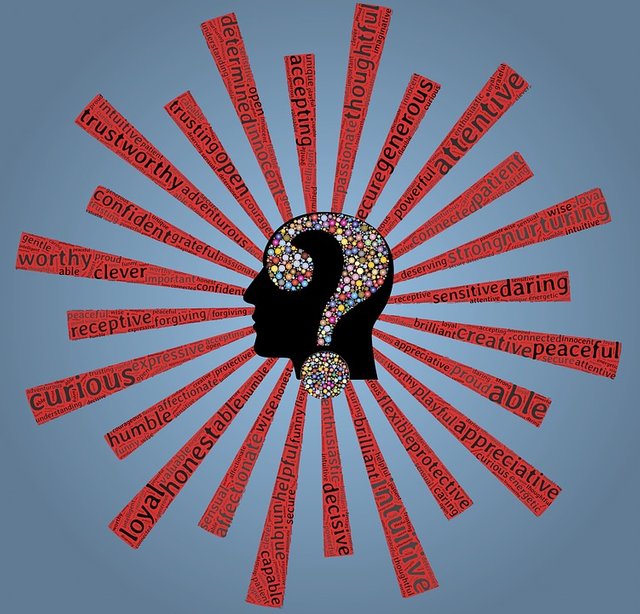Emotion Intelligence: Part 2 of my simple EI guide

If you haven’t yet, I suggest reading part 1 or my EI guide. Remember, my goal here is to provide you with something informative and easy to read about Emotional Intelligence. Save you the trouble of having to read through a ton of articles yourself. In part 1 we discussed what EI is, why it’s important and how to measure it. Now I plan to go into a bit more into detail on how it impacts you. Just like how IQ has an impact on intelligence and how you process information. EI impacts your ability to understand and manage emotions. People with high EI tend to exhibit different emotional behaviors opposed to someone with a low EI. Generally, their interpersonal relationships will be different as well.
What kind of differences are we talking about?
People with a high emotional intelligence exhibit excellent professional and interpersonal skills. While somewhat obscure in the past, EI has gained more prominence. These days, many studies along with practical examples support its importance.
Research by the Center for Creative Leadership found that deficiencies in emotional competence were the number one cause of executive derailment. Keep in mind this company services more than 80 of the top 100 Fortune companies. This means that with some of the highest paid executives in this country, problems with handling emotions was a huge factor in their ability to do their job.
As mentioned before TalentSmart found a link between high EI and workplace success. They found that people with high EI tend to be:

Other studies have come to similar conclusions. A study in Toronto found that people with a lower EI allowed anxiety to impact important decisions. Even if the anxiety was unrelated to to the current decisions. This relates to carrying stress over into important things such as office behavior or investment decisions.
People with a high EI were found to be the exact opposite. Instead not letting anxiety or stress impact the decision-making process. Keep in mind a high EI does not mean the removal of all emotions. Instead, it means management of emotions. Such as ignoring negative emotions. Especially ones that you know should have no impact on the decision making process.
A study on consumers and diet habits found similar results. Linking a higher EI with the ability to make healthier food decisions. This is because one can have knowledge of nutrition. But if they do not understand their emotions they can let those emotions impact their food choices. This even extends into personal relationships. Two different studies found a correlation linking high EI with better marriage satisfaction.
One found that among newlywed couples, they were happier due to men being able to better work with their partners on an emotional level. The second found such a strong connection between emotional intelligence and successful marriage, they suggested that educational origination's should pay more attention to teaching emotional skills to increase the success rate of marriages.

Even at the high school level, a study found that a high emotional intelligence led to better academic achievements.
Okay, so a high EI is good. How is a low EI bad? What are signs of a low emotional intelligence?
This part probably seems obvious to an extent, but is worth mentioning. Generally, if you have a low EI you tend to struggle where someone with a high EI might succeed. Not only in managing your own emotions, but understanding how emotions impact others. Remember EI can affect all of our relationships, professional and personal. Some symptoms of low EI can include:
As you can see a low EI links to almost every negative behavior you can think of. The kind of people you tend to stay away from or have a hard time maintaining a good relationship with. Things such as a lack of empathy or easily criticizing others will make it difficult to succeed. Both professionally and in personal relationships. You will let things such as stress have control over you. This can lead to a ripple effect in behavior or lifestyle. As I mentioned in my article on stress being stressed out can lead to an unhealthy lifestyle. And over time can snowball to a point that seems impossible to control.
What can I do if I have a low EI?

If you have a low EI or behaviors of someone with a low EI don’t get upset. It’s not the end of the world! While being able to work with our emotions can be harder for some people the truth is that most anyone can raise their EI score with time. There are numerous resources available on how to do this. My last post will probably address this in detail.
Studies seem to support that one can improve their emotional skills. One study finds from a meta-analysis of school children found that by enrolling in an SEL (social and emotional learning) program they over time demonstrated significantly improved social and emotional skills. This also reflected in higher academic achievements as well.
The most important thing is recognizing negative behaviors and eliminating them. Along with this learning to cope with negative emotions and embrace positive ones. Most importantly, remember that improving your EI is a lifelong process. This isn’t something you work at for a week and then stop. Rather, you work on always improving your ability to understand your full range of emotions. You also work on understanding how emotions impact those around you. If you work at it there’s no limit to how far you can take it.
Bonus: Is EI more important that IQ?

This is a debate which will go on forever, so I won’t take either side exactly. I do know that personally, I believe the IQ test can be a bit narrow. Some people have suggested that there are multiple types of intelligence. This means that some people can have strengths in some areas but not others. Basically, that IQ tests might not address the full range of human intelligence. This I can agree.
Does that mean that EI is more important than IQ. Some studies have found that EI seems to play a bigger factor in things such as work success. Finding that above a certain level of success IQ seemed to have a diminishing importance. While on the other hand, a high EI had increasing importance. For example, research from The Carnegie Institute of Technology found that 85% of financial success was due to things such as “human engineering,” personality, ability to communicate, negotiate and lead. While only 15% was due to technical ability. Logically, this makes sense to me to a large extent.
After all, think about it. The manager who is most successful at your work is often the one who is best with people in one way or another. When you are going to buy a car or house you’re more likely to buy from the person who is a good sales person. Emotions play a big part of who we are as humans since they make us what we are.
That being said I wouldn’t truly say that EI is more important than IQ. As mentioned before, I take all these as relative measurements. And to an extent with a grain of salt. To me IQ is important, EI is important, but they only make up portions of a person’s intelligence. Neither of them is a complete, absolute or always 100% right. In the end, I would say they are both important in their own way.
I hope you enjoyed this post part 2 in my emotional intelligence series. I enjoyed writing it up. You can look forward to my third and final part sometime in the near future. Any questions, comments, suggestions, etc. Please feel free to let me know. As always, feel free to follow, upvote and resteem.
Resources:
https://www.forbes.com/sites/travisbradberry/2014/01/09/emotional-intelligence/#d94a5d31ac0e
https://www.extension.harvard.edu/professional-development/blog/emotional-intelligence-no-soft-skill
https://www.fastcompany.com/3047455/why-emotionally-intelligent-people-are-more-successful
http://www.rotman.utoronto.ca/Connect/MediaCentre/NewsReleases/20131119.aspx
https://www.sciencedaily.com/releases/2008/05/080530132111.htm
https://www.gottman.com/blog/emotionally-intelligent-husbands-key-lasting-marriage/
http://www.sciencedirect.com/science/article/pii/S0191886904000121
All of these are free to use images. Sources below.
Images sources:
Join us on #steemSTEM
Thank you for this article, that we have upvoted and advertised on our chat channel.
The steemSTEM project is a community-supported project aiming to increase the quality and the visibility of STEM (STEM is the acronym for Science, Technology, Engineering and Mathematics) articles on Steemit.
Why thank you I'm honored and appreciate it. I'll be checking out the channel.
I don't have the time to read this right now, but I bookmarked it and am ready to dive into it at the soonest convenience. ;)
Well I appreciate that. I certainly hope that you enjoy it and I welcfome any feedback. :-) I do think they should consider putting a bookmark feature into the web site, lol. I find so many good articles where I need to either reply or save the link for later.
Agreed 100% there bud. Site needs a variety of features though. Like we still can't DM? What's up with that?
Anyways, your posts looking better and better from a presentational stand-point, keep it up!
True. I know the devs are working on it so hopefully they can add that feature in the next update. DM would be pretty nice.
Thanks a lot I appreciate that. ^_^ Really trying hard to commit to this and work hard at it.
Congratulations! This post has been upvoted from the communal account, @minnowsupport, by Exavier from the Minnow Support Project. It's a witness project run by aggroed, ausbitbank, teamsteem, theprophet0, and someguy123. The goal is to help Steemit grow by supporting Minnows and creating a social network. Please find us in the Peace, Abundance, and Liberty Network (PALnet) Discord Channel. It's a completely public and open space to all members of the Steemit community who voluntarily choose to be there.
If you like what we're doing please upvote this comment so we can continue to build the community account that's supporting all members.